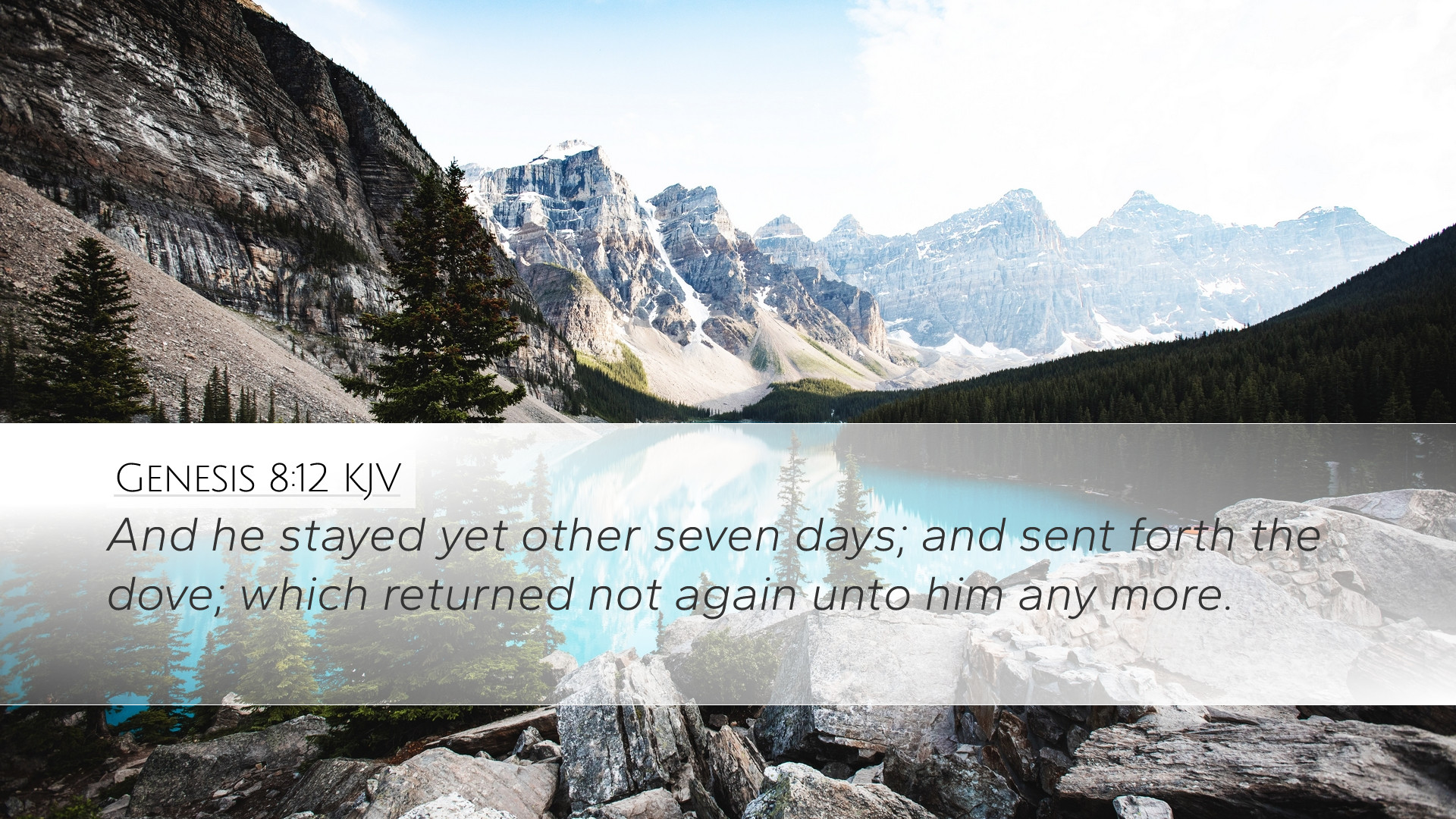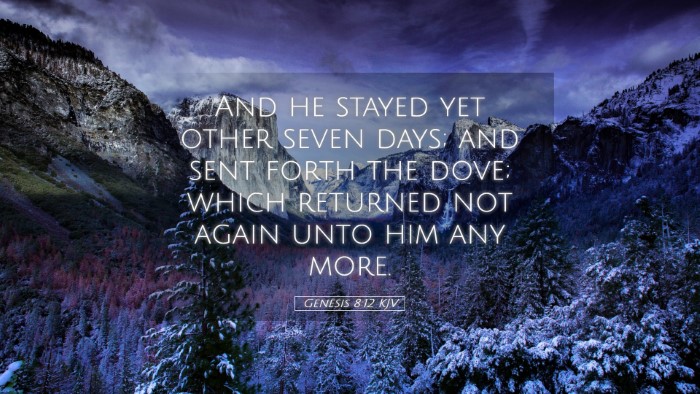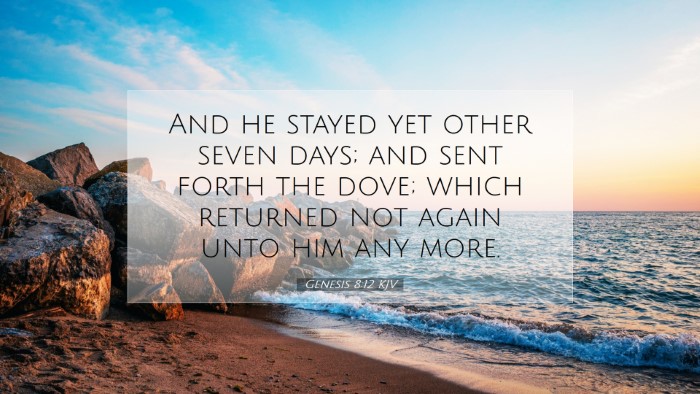Genesis 8:12 Commentary
Verse Text: "And he stayed yet other seven days; and sent forth the dove; which returned not again unto him any more."
Introduction
The verse Genesis 8:12, situated within the narrative of Noah's post-flood experience, serves as a profound moment of transition from judgment to renewal. It encapsulates themes of hope, divine fidelity, and the dawning of a new creation. The insights drawn from renowned public domain commentaries provide a layered understanding of its theological implications, which are pertinent for pastors, students, theologians, and Bible scholars.
Contextual Analysis
This verse is set against the backdrop of the Great Flood, a significant event in biblical history symbolizing both God's judgment against a sinful world and His covenantal promise of salvation. In Genesis 8, we observe Noah's diligence and faithfulness as he awaits God's command after the floodwaters have receded.
The sending forth of the dove is emblematic of a search for newness in creation and a symbolic gesture towards the restoration of the earth. The repeated sending of the dove echoes a theme of hope amidst desolation. Various commentaries illuminate this duality:
- Matthew Henry: Henry emphasizes the significance of Noah's patience and obedience during this uncertain period. The dove's return signifies the conditions of the earth and the awaited promise of divine renewal.
- Albert Barnes: Barnes elaborates on the symbolism of the dove as a messenger of hope. The dove's departure and subsequent lack of return is seen as a sign that the conditions conducive to life had been restored on the earth.
- Adam Clarke: Clarke provides insight into the characteristics of the dove, often regarded as a symbol of the Holy Spirit. The absence of the dove upon its final release symbolizes God's approval of the renewed earth.
Significance of the Dove
The use of the dove in Genesis 8:12 invites deeper theological reflection:
- Symbol of Peace: The dove is often associated with peace and reconciliation. This element resonates with the post-flood context, where God establishes peace with humanity.
- Dove as the Holy Spirit: Many biblical scholars interpret the dove as a precursor to the Holy Spirit's role in creation and recreation, suggesting a foreshadowing of the Spirit's work in believers' lives.
Thematic Reflections
This verse prompts several theological reflections for contemporary faith communities:
- Hope in Transition: The act of sending the dove signifies hope during ambiguity. For believers today, it underscores the importance of faith in waiting periods, affirming that God's timing ultimately leads to restoration.
- Covenantal Promise: The conclusion of the verse, where the dove does not return, implies a new beginning. It highlights God’s faithfulness to His promises, a recurring motif throughout Scripture.
- Preparing for the New: Noah's actions demonstrate the necessity of preparation for what is to come. It challenges readers to be proactive in seeking God's direction during times of uncertainty.
Applications for Ministry
Pastors and church leaders can derive practical applications from this verse to guide their congregations:
- Encouraging Patience: Teach the value of patience and faithfulness in times of waiting, drawing parallels to Noah's perseverance.
- Promoting Hope: Foster a culture of hope within the church, emphasizing that God brings new beginnings and restoration.
- Symbolizing Transition: Utilize the imagery of the dove in sermons and teachings to illustrate God's peace and the Holy Spirit’s role in guiding believers through transitions.
Conclusion
Genesis 8:12 serves as a rich tapestry woven with themes of hope, promise, and the transformative power of divine presence. The insights from public domain commentaries enhance our understanding of the text's depth, urging believers to trust in God’s commitment to renewal and to engage actively in the new life that He offers.


